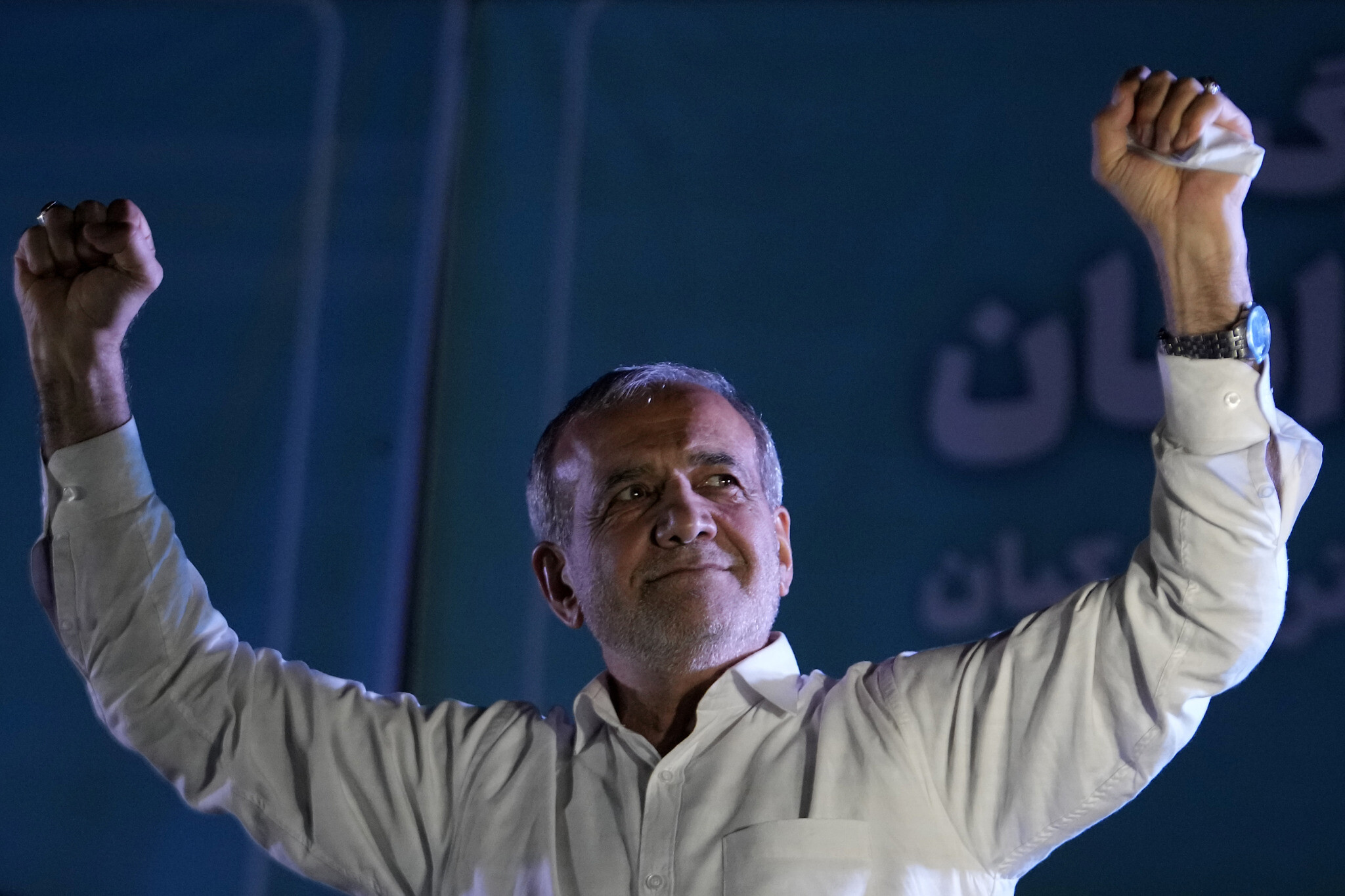In a significant political shift, Iran’s new president-elect, Masoud Pezeshkian, a reformist, has pledged to renew diplomatic outreach to the United States and halt the crackdown on women defying hijab laws. This unexpected development follows the death of the previous hard-line president, Ebrahim Raisi, in a helicopter crash in May.
Pezeshkian, a former health minister and deputy speaker of parliament, brings the sidelined reformist movement back to prominence, promising to steer Tehran away from escalating tensions with Washington.
Pezeshkian’s election victory marks a potential turning point in Iran’s politics, echoing the reformist era of Mohammad Khatami (1997-2005). His win, however, will face significant resistance from Iran’s entrenched hard-line factions, including Supreme Leader Ayatollah Ali Khamenei, a conservative parliament, and the powerful Islamic Revolutionary Guard Corps (IRGC). Despite this, Pezeshkian enjoys widespread support from an Iranian populace eager for economic relief and social freedoms.
In the election, Pezeshkian secured 53.6 percent of the vote against ultra-hard-liner Saeed Jalili in the second round. His success is attributed to a coalition of urban, educated elites, young voters, and non-Persian minorities. Despite low overall voter turnout, this coalition managed to overcome the prevailing pessimism and cynicism to support Pezeshkian’s reformist agenda.

During his campaign, Pezeshkian linked Iran’s economic woes to its international isolation following the US’s withdrawal from the nuclear deal (JCPOA) in 2018 and subsequent sanctions.
He plans to revive the diplomatic team that negotiated the JCPOA, including Javad Zarif, the former foreign minister who played a key role in the original agreement. Pezeshkian’s intent is to mitigate the economic stranglehold caused by US sanctions and re-engage with the international community.
Pezeshkian’s primary domestic challenge will be the enforcement of the country’s hijab laws, which have sparked widespread protests and harsh crackdowns in recent years.
While he acknowledges the difficulty of repealing these laws under a right-wing parliament, he aims to mitigate their enforcement, thereby addressing one of the major grievances of the Iranian populace. His stance reflects the broader demand for social reform and resistance against the regime’s oppressive measures.
The unexpected election results have surprised both Iran’s Supreme Leader and American neoconservatives who predicted a hard-line continuation. Critics argued that Iran’s elections were rigged and inconsequential, but Pezeshkian’s victory challenges this narrative. His win suggests a significant shift in the political landscape, indicating that the supreme leader’s influence may not be as absolute as previously thought.
In Washington, there is skepticism about Pezeshkian’s potential for success, with some anticipating increased conflict in regions where Iran holds influence. If Donald Trump is reelected, Pezeshkian may face heightened challenges, as the Trump administration previously adopted a hard-line stance against Iran.
Nevertheless, Pezeshkian’s presidency opens a new chapter in US-Iran relations, with the possibility of renewed diplomacy and a move away from the brink of conflict.


